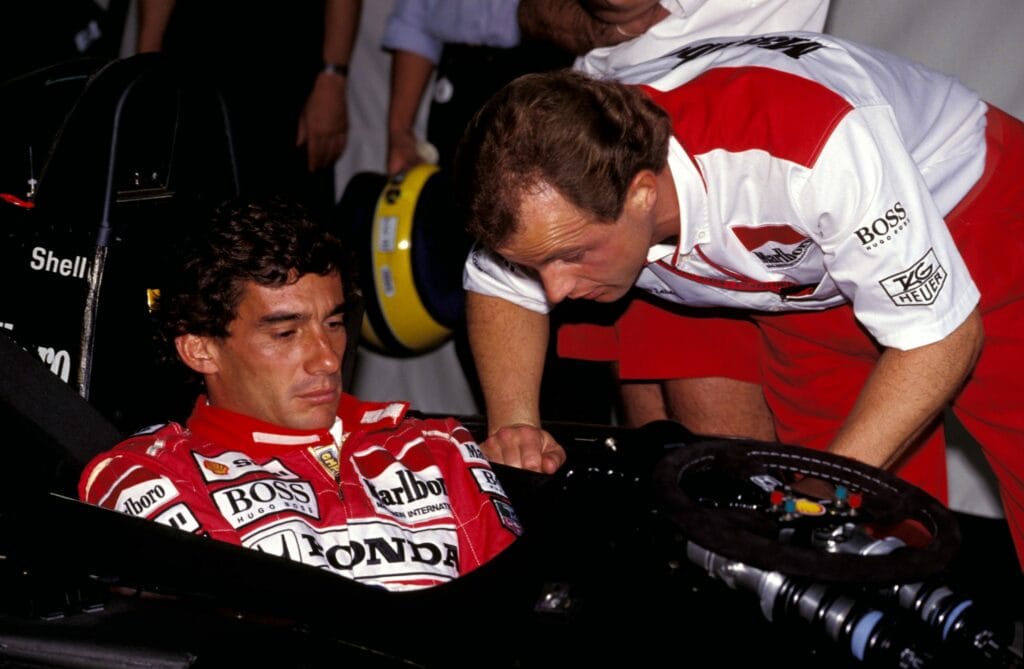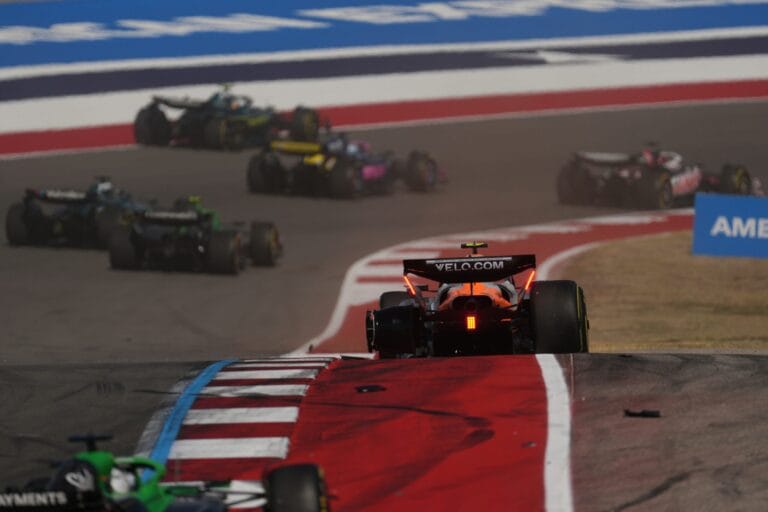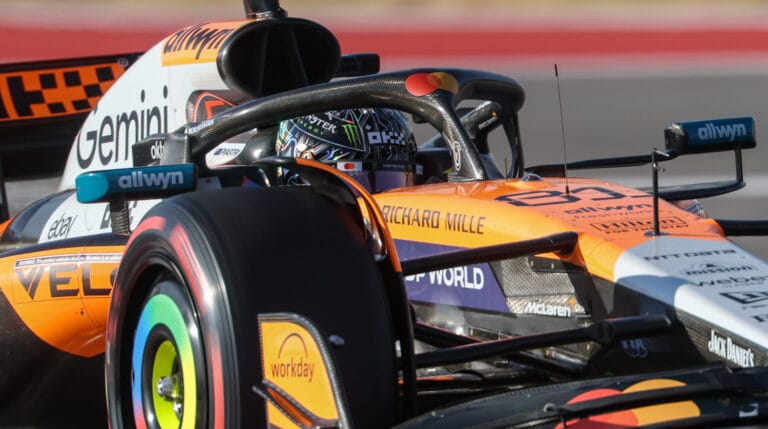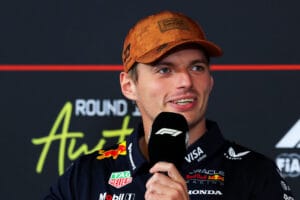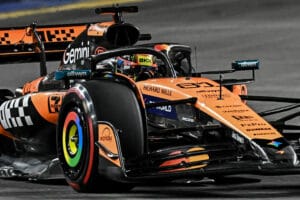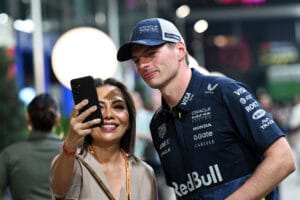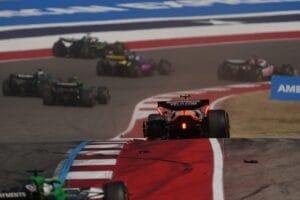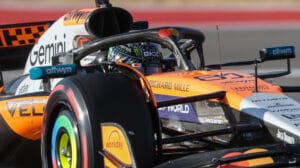Remembering Ayrton Senna, an eternal legend. This Wednesday marks the 30th anniversary of the Brazilian’s tragic death following a severe crash at the Imola circuit. Today, we share an exclusive interview with Josef Leberer, Senna’s physiotherapist and trainer. This interview was conducted in 2019, and the information reflects that time period.
Josef Leberer often reflects on the man with whom he forged an everlasting bond over seven years. As Senna’s physiotherapist and trainer, he shares his memories of the Brazilian legend. “People were willing to give their lives for him.”
What Made Senna So Special, So Different from Others?
“Ayrton was an incredibly charismatic personality and a very pleasant, sensitive person. He was meticulous: a perfectionist and incredibly analytical. He was also demanding. Hard on himself and hard on others, which is quite un-Brazilian. He was calm and reserved, but uncompromising when necessary. I wouldn’t call him ruthless, as that sounds too negative. Ruthless implies that he didn’t care about anything else, which wasn’t the case. Ayrton was confident, so confident that he was the best… And in fact, he was. He was always striving for improvement, even with the mechanics.
Ayrton had an incredible ability to motivate people, to get them moving. It wasn’t an act, but because he himself was so focused. He drew everyone into his focus, including me. But you could tell that it was also important for him to relax, recharge, and balance his body and mind. After all, he was always under immense pressure. I had a wonderful time with Ayrton. He was receptive to everything, he took everything from me.”
During the nearly hour-and-a-half conversation, Leberer’s thoughts occasionally drift to the distant past. The way he speaks about Senna reveals his admiration, friendship, and a pain that will probably never fully disappear. He still frequently thinks about his old companion. “Ayrton was like a battery: he had an incredible amount of energy and only focused on the things that were important,” says Leberer. “I still draw energy from him. But at the same time, he was reserved, sensitive, and even somewhat shy. He never put himself in the spotlight. When we entered a restaurant or hotel, he would say, ‘Hello, my name is Senna, and I have a reservation.’ There was never anything like: here I am, the great Ayrton Senna. He never had security, always a small entourage. Ayrton behaved normally, was very human and upright. With a great passion for racing.”
‘Senna was a perfectionist and incredibly analytical, tough on himself and tough on others’
According to Leberer, he learned to know himself well through the joy of racing. “He used that to further develop himself. Especially as a person, with his own standards and values. I often got annoyed that people spoke so ruthlessly about him, provoked him, and portrayed him as false. That’s not right. Ayrton always cared about other drivers, about safety. He was only uncompromising and tough when he felt that injustice was being done to him. Then he would say, ‘If it doesn’t work this way, I have to take matters into my own hands.'”
We received footage from an amateur photographer of Erik Comas’ training accident at Spa-Francorchamps in 1992. There’s one driver who gets out of his car…
Leberer doesn’t wait for the end of the sentence. “And that was Ayrton, wasn’t it? That’s what I mean. I’m glad that many people see that image of him. Of course, he came from a privileged background, but he set the right example and tried to help his fellow human beings. Always. Ayrton put so much energy into his institute, as the family still does. They help millions of less fortunate Brazilian children with food, education, and sports. I still find that dynamism incredible.”
Are you surprised that his legacy continues?
“No, not at all. I knew him, appreciated him. The way he lived, his empathy, the charisma, the energy, and those brown eyes… Ayrton was a handsome man. Women fell for his beautiful locks and piercing eyes. But you know, it’s hard to explain. I still meet people who didn’t personally know him, but they know everything about him. In our team, we have employees who were maybe ten years old in 1994; yet we have an engineer who knows everything about Ayrton. The Italians in our team know absolutely everything about him; sometimes they even ask me about certain things. Last year, Charles Leclerc drove for us. Senna is his idol, that says something. I’ve spoken with Charles about Ayrton a few times. Briefly. But actually, we all know him quite well, don’t we? And that makes me happy.”
How did the collaboration with Senna come about? Why did he choose you as his trainer/physiotherapist?
“My first Formula 1 race was in 1988: Rio de Janeiro. I worked for McLaren. Professor Dungl (then the team’s medical guide and founder of the current training methods for drivers) was not there. Alain Prost had an accident on Friday and had a splitting headache. He asked if I could give him something for the pain. I thought: my god, I’m here all alone, this is my responsibility.” Laughs: “And my first and last race.” Continues: “What should I do with Alain Prost, a two-time world champion? A pill? I said: ‘Let’s go back to the hotel first.’ That way, I could think about it on the way. But Prost kept asking: ‘Please give me something for the pain, I can’t stand it.’
I was very nervous. Intuitively, I decided to give Prost an extensive massage at the hotel and said: ‘If this doesn’t help, we’ll look further tomorrow.’ After that treatment, I fell asleep myself, because I was very tired. Until I was called late in the evening. It was Prost. I immediately thought: oh, there must be something wrong. But he asked: ‘What did you do? I have no pain anymore, slept wonderfully and feel great.’ On Sunday, Prost won the race, Senna was disqualified. Ron Dennis (team boss) and Gordon Murray (designer) said to me afterwards: ‘Good job, Josef.’
From Privilege to Philanthropy: Ayrton’s Unusual Kindness
On Sunday evening, I was completely exhausted. I had cooked for the racers, massaged them, and had put in a great effort that weekend. We were staying at the Intercontinental Hotel when suddenly my room phone rang. ‘Hello, this is Ayrton.’ I asked him if he needed another massage. ‘No,’ he replied, and asked if I knew people in Rio. ‘I’m going to have dinner with some friends later; would you like to join?’ I had only known him for a week and thought: he’s thinking of the masseur, what kind of person is this? All the celebrities, artists, and stars in Rio want to dine with him, but he’s asking me if I want to join.
A few years later, an acquaintance told me that Ayrton had seen what I had done with Prost on Friday. So, there might have been a bit of self-interest in inviting me to that dinner. I don’t know, but if it was, it was very clever. Ayrton was both clever and very sociable.
Pioneers in Medical Support: The McLaren Team
The strain on the drivers was very heavy: the cars had no power steering, the drivers had to shift gears manually. Everything hurt. Prost, his rival and a very intelligent man, was well trained. Ayrton knew that he too could only perform if he was physically in top shape. In the last twenty decisive laps, when almost everyone was tired, he had to make the difference physically. Ayrton realized this. I treated both drivers at McLaren for two years. You can’t imagine that now, can you? At one point, Ayrton said he would appreciate it if I continued to accompany him. That was a no-brainer for me.
Reflecting on a Special Relationship
“He didn’t treat me as an employee. We had a very natural relationship. I was part of the family. I felt this when I was invited to dine with him and his family. I think that says something. He was very kind and loyal to me. To his entire team, in fact, including the mechanics. It’s an exaggeration to say that people would give their lives for him, but I would have blindly put my hand in the fire for him, knowing he would do the same for me. Ayrton was the kind of leader one should be: he took responsibility and demanded a lot, but also gave a lot back. He fought for others, he made efforts for them.”
Conversations Beyond Racing
“We didn’t talk much during massages. That’s a time to distance oneself from the day’s events. It’s a time to regenerate, regain strength, and focus on other things. I would sometimes ask questions to distract him. He would notice and say, ‘How do you know what I’m thinking? Did I tell you something?’ I often knew what was on his mind, what he was thinking. Through all the vibrations in a body, you understand how someone feels, you can almost read their thoughts. It’s important for everyone to find a balance; you can’t always keep going. You need day and night, sun and rain… Ayrton understood that.
If you can bring your body and mind to rest, you can develop further. He trusted me, we were on the same wavelength. We didn’t need to say anything to understand each other. Over time, we spoke less and less, so focused were we. I knew exactly what he needed and when: drink, food, or whatever. I cooked a lot for him, we grew our own vegetables. Organic, yes, we were doing that 30 years ago. Everything was top-notch. It was good for Ayrton, it was fuel for his body and mind. He and Prost already understood then how important nutrition and physical guidance are.”
Remembering Ayrton
“Yes, I miss him. I often think about Ayrton. It’s sad what happened, but I have so many beautiful memories of him. Time went by so quickly. The period with Ayrton is an important part of my life, a very beautiful part too. We had a lot of fun. He was very witty with friends, a bit reserved with others. But he always knew exactly when he needed to refocus.”
What do you remember from the weekend in Imola?
“First, there was that terribly heavy crash of Rubens Barrichello, then the death of Roland Ratzenberger on Saturday. Everyone was upset about it, there was a terrible atmosphere. Ayrton was very affected. The accident happened on my birthday, April 30th. We were going to celebrate it in the evening, but we didn’t feel like it anymore. Ayrton wanted to know from me what kind of family Roland came from, what kind of people the Ratzenbergers were. He didn’t say much that evening, he just had a long phone call with his family. He also didn’t want a massage anymore: the only time this wasn’t necessary on a Saturday. There was so much going on in his head, it was haunting him. He wanted to talk to someone about it. I think he talked to his family about Ratzenberger. It is about life and death, isn’t it?
Professor Sid Watkins (then the doctor of the FIA) had said to him on Saturday: “Let’s go fishing. Why are we doing this? It’s not worth it.” But Ayrton said: “I have to keep racing, it’s in my blood. I owe it to my fans and my country.” He gave the Brazilians hope in those difficult times, didn’t want to give up but fight and be an example. He tried to give his country hope through racing, so that maybe something would change. It wasn’t just about racing for Ayrton: he felt responsible for his country.”
With fatal consequences.
“I saw it on television immediately: brrrr. It was as if I was struck by a sting. He didn’t move, I feared the worst. Unfortunately, I was right. I can still remember him putting on his helmet just before the race. I gave him something to drink. Gerhard Berger’s name, his friend and driver at Ferrari, was announced over the loudspeakers. All the Italian tifosi went crazy. Ayrton was enjoying it in the car. It was the last time he laughed. I also told this story to Gerhard, he found it so nice to hear.
After the accident, I flew to the hospital with Professor Watkins and Ayrton’s brother Leonardo by helicopter. There was no more hope: he was connected to a machine, had severe head injuries. I thought: this can’t be true. It was so hard… Gerhard also came to the hospital. ‘Josef, I need to see him.’ I said: ‘You don’t want that.’ He did it anyway. Gerhard embraced me and we cried together. He said: ‘We have lost a great friend, it’s as if the sun has fallen from the sky.’
‘It’s as if the sun has fallen from the sky’
I later drove home to comfort his brother. But what can you do? Of course, it was worst for his parents: they had lost their child, the worst thing that can happen to you. Only time can somewhat heal such a wound. We had a good time. Ayrton was very loved and did what he loved most. That’s where I found my peace.”


